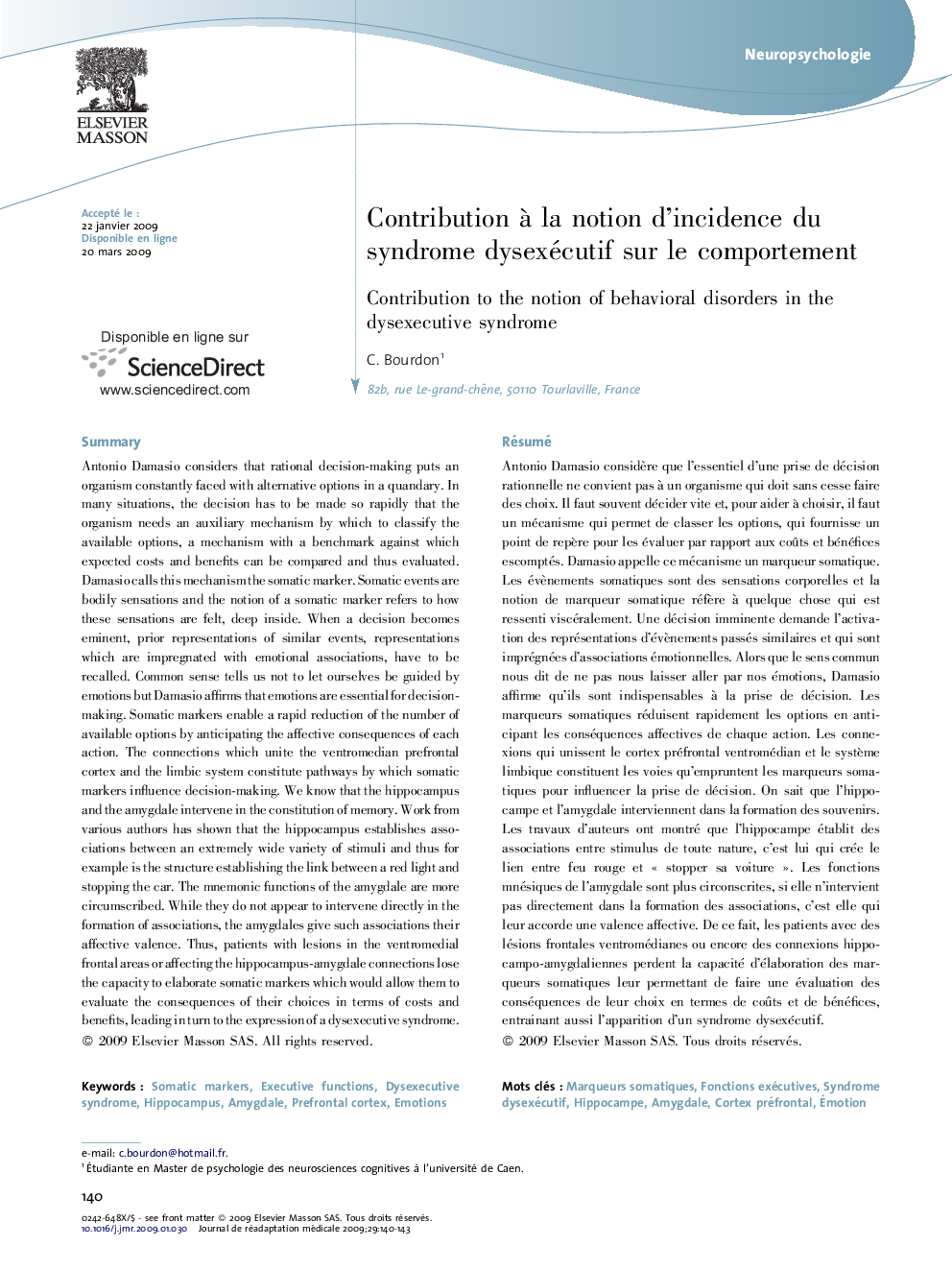| Article ID | Journal | Published Year | Pages | File Type |
|---|---|---|---|---|
| 2706304 | Journal de Réadaptation Médicale : Pratique et Formation en Médecine Physique et de Réadaptation | 2009 | 4 Pages |
Abstract
Antonio Damasio considers that rational decision-making puts an organism constantly faced with alternative options in a quandary. In many situations, the decision has to be made so rapidly that the organism needs an auxiliary mechanism by which to classify the available options, a mechanism with a benchmark against which expected costs and benefits can be compared and thus evaluated. Damasio calls this mechanism the somatic marker. Somatic events are bodily sensations and the notion of a somatic marker refers to how these sensations are felt, deep inside. When a decision becomes eminent, prior representations of similar events, representations which are impregnated with emotional associations, have to be recalled. Common sense tells us not to let ourselves be guided by emotions but Damasio affirms that emotions are essential for decision-making. Somatic markers enable a rapid reduction of the number of available options by anticipating the affective consequences of each action. The connections which unite the ventromedian prefrontal cortex and the limbic system constitute pathways by which somatic markers influence decision-making. We know that the hippocampus and the amygdale intervene in the constitution of memory. Work from various authors has shown that the hippocampus establishes associations between an extremely wide variety of stimuli and thus for example is the structure establishing the link between a red light and stopping the car. The mnemonic functions of the amygdale are more circumscribed. While they do not appear to intervene directly in the formation of associations, the amygdales give such associations their affective valence. Thus, patients with lesions in the ventromedial frontal areas or affecting the hippocampus-amygdale connections lose the capacity to elaborate somatic markers which would allow them to evaluate the consequences of their choices in terms of costs and benefits, leading in turn to the expression of a dysexecutive syndrome.
Related Topics
Health Sciences
Medicine and Dentistry
Orthopedics, Sports Medicine and Rehabilitation
Authors
C. Bourdon,
